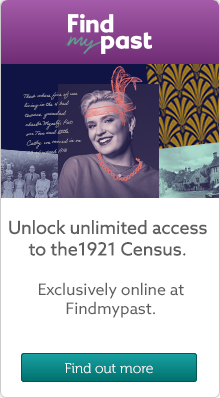Genealogy Chat
Welcome to the Genes Reunited community boards!
- The Genes Reunited community is made up of millions of people with similar interests. Discover your family history and make life long friends along the way.
- You will find a close knit but welcoming group of keen genealogists all prepared to offer advice and help to new members.
- And it's not all serious business. The boards are often a place to relax and be entertained by all kinds of subjects.
- The Genes community will go out of their way to help you, so don’t be shy about asking for help.
Quick Search
Single word search
Icons
- New posts
- No new posts
- Thread closed
- Stickied, new posts
- Stickied, no new posts
Is this true of all families?
| Profile | Posted by | Options | Post Date |
|---|---|---|---|
|
Heather | Report | 20 Sep 2007 10:29 |
|
Amazingly a lot of country children were better educated than city kids because the local Lord of the Manor, or estate owner would take it upon himself to provide a school alongside the church. |
|||
|
♥Athena | Report | 20 Sep 2007 10:18 |
|
Also, I read in one of my Victorian history books that a lot of people from the middle/lower classes signed with an X because they did not want to appear "above their station", so to speak, even if they were literate. Talk about being modest! Funny old world, eh? |
|||
|
mgnv | Report | 20 Sep 2007 07:06 |
|
Scholar ~ from 1861 onwards a child was described as a scholar if he/she was over 5 and receiving daily schooling or regular tuition at home. There was no definition of the latter. In 1871 the census officials in London broke the confidentiality pledge and divulged the names of all children 3-13 and their parents (with addresses) to the London School Board to help enforce compulsory education. |
|||
|
Huia | Report | 20 Sep 2007 04:55 |
|
As I understand it, some of the vicars or parish clerks did not ask the bride and groom and witnesses to sign, they merely put their names in to save time. After all there were often a lot of marriages on that day. |
|||
Researching: |
|||
|
Kate | Report | 19 Sep 2007 23:34 |
|
The Education act came in 1870 (Feb 13th according to Wikipedia) - it said elementary education was to be provided for children by the Board of Education for all children between 5 and 12 years. If you look the article up there is quite a bit about it. |
|||
|
*****me***** | Report | 19 Sep 2007 22:11 |
|
think children did part time work as well as school, and then a lot of them were kept away from school to help look after siblings, no wonder half of them only signed x. |
|||
|
Linda | Report | 19 Sep 2007 21:57 |
|
When I check the census records almost all the children from age 6 are "Scholars" but when it comes to the marriage certs. 9 out of ten have "X" their mark because they couldn't read or write. What did they learn as scholars? |
|||

